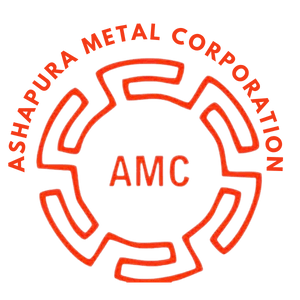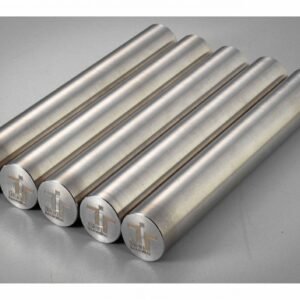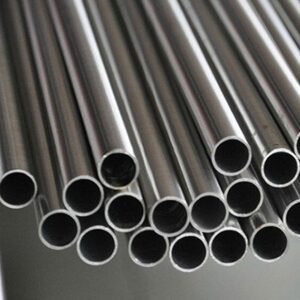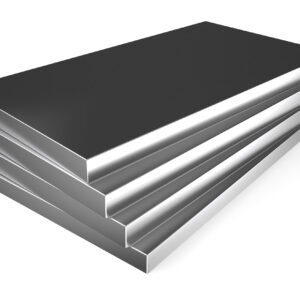Titanium
Our Product Range
Specialty Metals
We are stockiest and Suppliers of It resists oxidation and most acids, and its surface readily forms a protective oxide
layer (TiO₂) that prevents further corrosion—even in seawater or chlorine environments.
Titanium
Welcome to Ashapura Metal Corporation We are stockiest and Suppliers of Titanium Products Here is a comprehensive overview of Titanium, covering its properties, types (grades), forms, standards, applications, and benefits everything you need to know in one place.
Titanium (Ti) is a strong, lightweight, corrosion-resistant metal with excellent biocompatibility. It’s used across industries like aerospace, medical, marine, and chemical processing due to its unique performance characteristics.
- Atomic Number: 22
- Density: ~4.51 g/cm³ (about 60% of steel's weight)
- Melting Point: ~1,668°C
- Color: Silvery-gray metallic
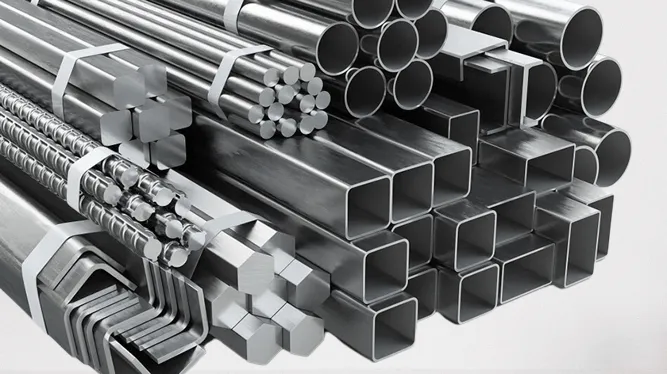
Titanium Grades and Types
Titanium is categorized into Commercially Pure (CP) and Alloyed grades.
➤ Commercially Pure Grades (Grades 1–4)
| Grade | Purity | Yield Strength (MPa) | Features | Uses |
| 1 | Highest | ~170 | Softest, most formable, most corrosion-resistant | Chemical, marine, medical |
| 2 | Most used | ~275 | Stronger than Grade 1, great weldability | Aerospace, industrial piping |
| 3 | Stronger | ~380 | Good strength, moderate ductility | Aerospace structures |
| 4 | Strongest | ~485 | Highest strength CP grade | Hydraulic, industrial systems |
➤ Titanium Alloys (Grades 5, 7, 9, 12, 23, etc.)
| Grade | Composition | Strength (MPa) | Features | Applications |
| 5 | Ti-6Al-4V | 900+ | Most widely used alloy; high strength | Aerospace, implants, sports |
| 7 | Ti-0.2Pd | ~340 | Superior corrosion in acidic environments | Chemical processing |
| 9 | Ti-3Al-2.5V | ~620 | Lightweight and weldable alloy | Aerospace tubing, bicycles |
| 12 | Ti-0.3Mo-0.8Ni | ~480 | Excellent in chlorides and acids | Marine, paper mills |
| 23 | Ti-6Al-4V ELI | ~860 | Low interstitials, biocompatible | Medical implants, surgical tools |
Titanium Product Forms
| Form | Description | Uses |
| Sheet | Flat, thin (< 4 mm) | Aerospace skin, medical cases |
| Plate | Flat, thick (> 4 mm) | Structural, marine, tooling |
| Bar/Rod | Solid round | Fasteners, implants, machine parts |
| Tube/Pipe | Hollow cylindrical | Piping systems, heat exchangers, bicycles |
| Wire | Thin flexible strands | Orthodontic wire, springs, electronics |
| Coil | Rolled sheet material | HVAC, architectural panels |
| Fittings | Connectors for piping | Chemical, marine, aerospace piping |
| Fasteners | Bolts, nuts, washers | Aerospace, racing, medical |
Titanium Standards (Most Common)
| Standard | Product/Form |
| ASTM B265 | Sheet, strip, and plate |
| ASTM B348 | Bars and billets |
| ASTM B861 | Seamless pipe |
| ASTM B862 | Welded pipe |
| ASTM B363 | Fittings |
| ASTM F136 | Medical-grade alloy (Ti-6Al-4V ELI) |
| AMS 4911 | Aerospace-grade Ti-6Al-4V sheet |
Titanium Properties
| Property | Value |
| Density | ~4.51 g/cm³ |
| Melting Point | 1,668°C |
| Modulus of Elasticity | ~105 GPa |
| Thermal Conductivity | ~22 W/m·K |
| Electrical Conductivity | ~3.1% of copper |
| Corrosion Resistance | Excellent in most environments |
| Magnetism | Non-magnetic |
| Biocompatibility | Excellent |
Applications of Titanium
Industry | Applications |
Aerospace | Airframes, jet engines, hydraulic systems |
Medical | Implants (hip/knee), surgical tools, dental posts |
Marine | Seawater piping, propeller shafts, heat exchangers |
Chemical | Reactors, acid storage tanks, fittings in harsh environments |
Automotive & Racing | Engine parts, valves, suspension components |
Architecture | Decorative panels, roofing, structural reinforcement |
Energy | Desalination plants, power plants, offshore oil rigs |
Advantages of Titanium
-
High Strength-to-Weight Ratio
-
Non-toxic and Biocompatible
-
Low Thermal Expansion
-
Non-magnetic
Disadvantages of Titanium
-
Expensive (raw material and processing cost)
-
Challenging to machine or weld (special tools needed)
-
Not as conductive as aluminum or copper


